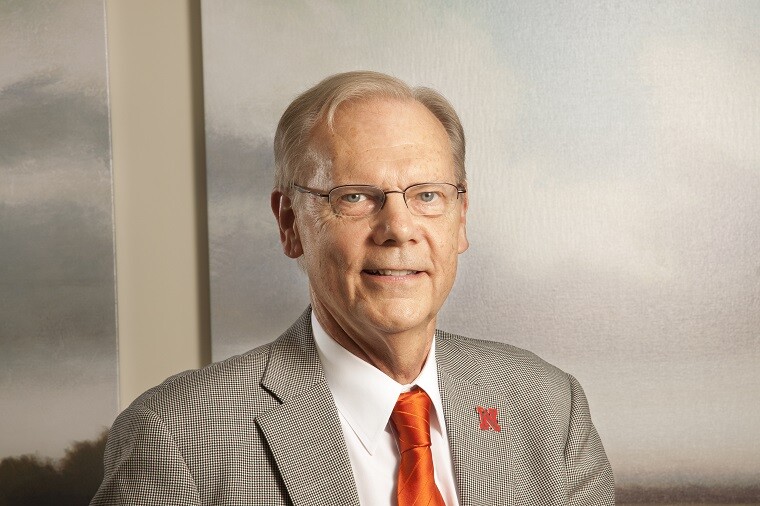
The Heuermann Lecture series’ 2014-2015 season will feature experts spanning a host of topics including climate change, animal biotechnology and agricultural communication.
Heuermann Lectures are free and open to the public. Lectures focus on providing and sustaining enough food, natural resources and renewable energy for the world’s people, and on securing the sustainability of rural communities where the vital work of producing food and renewable energy occurs.
The lecture series, in its fourth year, begins on Sept. 25 and will coincide with the release of a report on climate change compiled by Donald Wilhite, Robert Oglesby, Clinton Rowe and Deborah Bathke, all UNL faculty members in the Department of Earth and Atmospheric Sciences.
Wilhite, the founding director of the International Drought Information Center and the National Drought Mitigation Center at UNL, will lead a panel discussion on the issues surrounding our changing climate. Copies of the report will be available at the lecture and on-line following the lecture. One of the goals of this report is to identify the key challenges associated with climate change for the state and potential actions to adapt to our changing climate.
“Globally and locally, we face significant economic, social and environmental risks associated with climate change,” Wilhite said. “The body of scientific evidence confirms with a high degree of certainty that human activities in the form of increased concentration of greenhouse gases since the beginning of the Industrial Revolution, changes in land use and other factors are the primary causes for the warming the planet has experienced, especially in recent decades.”
Current and projected changes extend beyond temperature increases and include changes in precipitation amounts, seasonal distribution and frequency and intensity of extreme weather events. The increasing frequency of extreme events raises serious concerns for all nations due to economic, social and environmental costs associated with responding to, recovering from and preparing for these events.
“Nebraskans will face many challenges as a result of climate change,” he added. “However, embedded in each of these challenges are opportunities to create greater resilience as we adapt to these observed and projected changes in climate.”
The complete Heuermann Lecture series schedule is as follows:
Donald Wilhite, emeritus director and professor, National Drought Mitigation Center; with panelists Robert Oglesby, Deborah Bathke, and Clinton Rowe, UNL professors, will engage in a discussion titled “Understanding and Assessing Climate Change: Implications for Nebraska” on Sept. 25 at 3:30 p.m. at Nebraska Innovation Campus Conference Center, 2021 Transformation Drive. A 3 p.m. reception precedes the lecture.
Orion Samuelson, WGN-Chicago; with panelists Barb Glenn, National Association of State Directors of Agriculture; Kevin Murphy, Food Chain Communications; Marcy Tessman, Charleston-Orwig; Ronnie D. Green, University of Nebraska will ask “What Does Agricultural Communication Mean in the 21st Century?” on Nov. 6 at 3:30 p.m. at Nebraska East Campus Union, 37th and Fair Street, UNL East Campus. A 3 p.m. reception precedes the lecture.
Alison Van Eenennaam, University of California-Davis, 2014 Borlaug CAST Communication Awardee, will give a presentation titled “Genetically Modified Animals: the Facts, the Fear Mongering, and the Future” on Jan. 13 at 7 p.m. at Nebraska Innovation Campus Conference Center, 2021 Transformation Drive.
Anthony Leiserowitz, Yale School of Forestry & Environmental Studies, will give a presentation titled “Climate Change in the American Mind” on Mar. 10 at 3:30 p.m. at Hardin Hall, 33rd and Holdrege. A 3 p.m. reception preceding the lecture.
Lectures are streamed live online at http://heuermannlectures.unl.edu, and aired live on UNL campus and state cable channel 4. Lectures are archived after the event and are broadcast on NET2 World at a later date.
The Heuermann Lectures are made possible by a gift from B. Keith and Norma Heuermann of Phillips, long-time university supporters with a strong commitment to Nebraska’s production agriculture, natural resources, rural areas and people.







